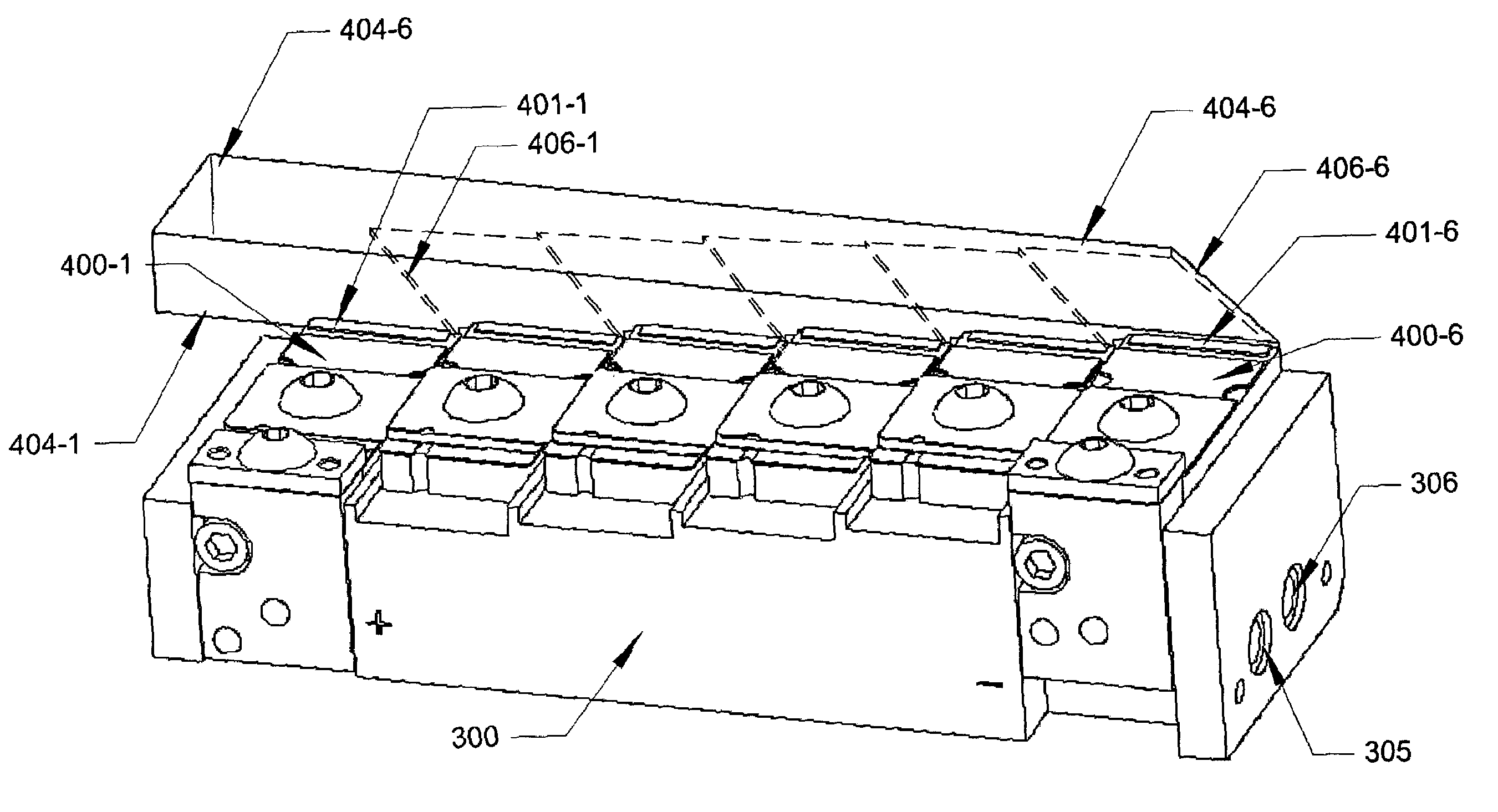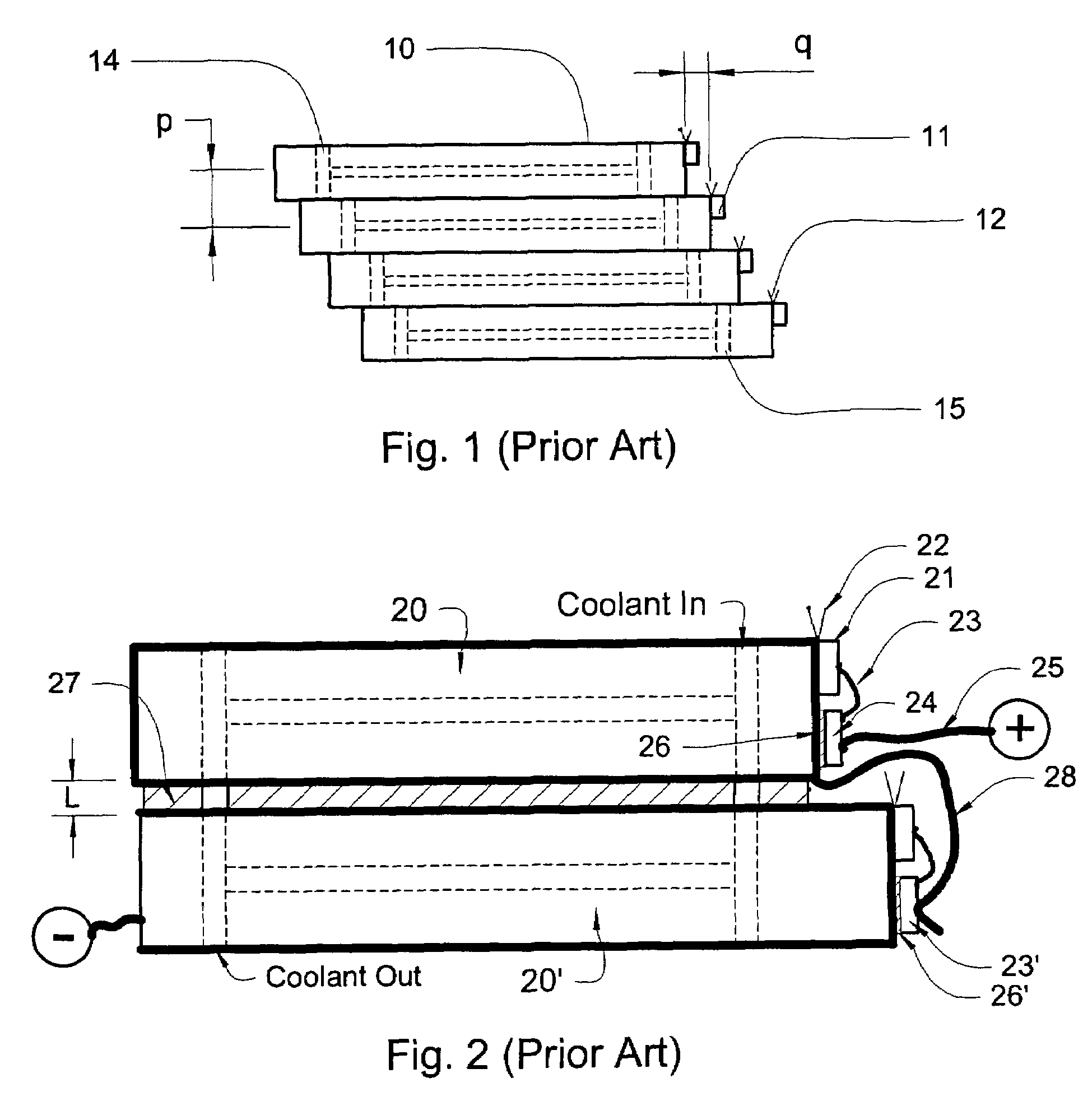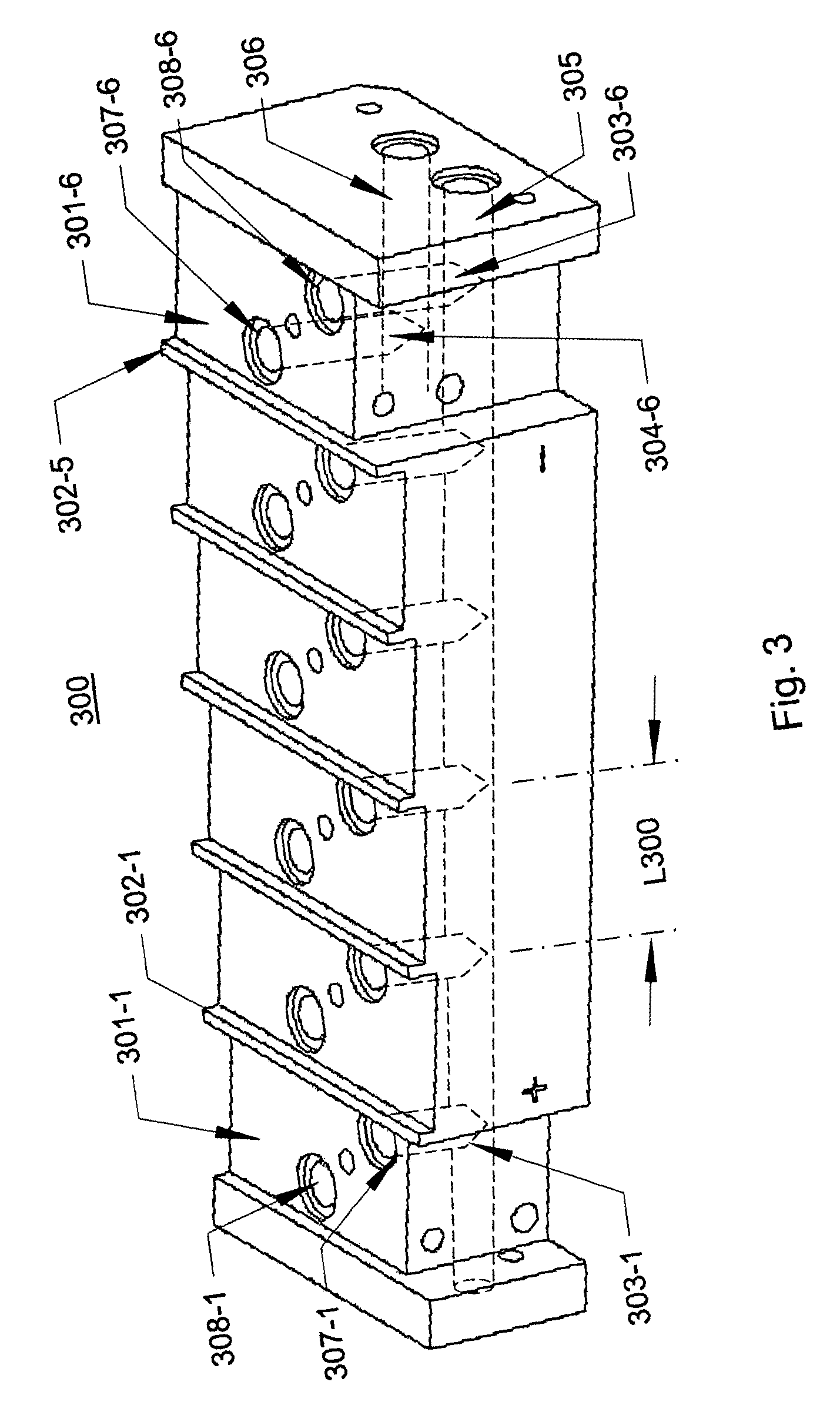Stepped manifold array of microchannel heat sinks
a technology of heat sinks and manifolds, which is applied in the direction of lasers, laser cooling arrangements, laser details, etc., can solve the problems of reducing the effective life of the heat sink, not being as efficient, and mounting laser bars at the end of the microchannel heat sink, so as to reduce the corrosion of the fluid path
- Summary
- Abstract
- Description
- Claims
- Application Information
AI Technical Summary
Benefits of technology
Problems solved by technology
Method used
Image
Examples
Embodiment Construction
[0011]FIG. 1 shows a vertical stack of microchannel heat sinks 10 each having an end-mounted laser bar 15 according to the '043 patent. End-mounting of the laser diode bars 10 allows the distance q between adjacent emitted light beams 16 to be smaller than the distance p between the center lines of adjacent heat sinks whereas mounting the laser diode bars on the top surface of each of the heat sinks determines that the distance q can be no smaller than the thickness of the heat sink. While the prior art arrangement of FIG. 1 allowed the light beams emitted by the laser diode bars to be more closely spaced, mounting the laser diode bars at the end of the microchannel heat sinks was not very efficient from the standpoint of cooling.
[0012]Unfortunately, identical microchannel heat sinks cannot be used in the configuration of FIG. 1 because, as shown, the cooling water inlets 14 and outlets 15 do not line up. This requires either that microchannel heat sinks with differently positioned ...
PUM
 Login to View More
Login to View More Abstract
Description
Claims
Application Information
 Login to View More
Login to View More - R&D
- Intellectual Property
- Life Sciences
- Materials
- Tech Scout
- Unparalleled Data Quality
- Higher Quality Content
- 60% Fewer Hallucinations
Browse by: Latest US Patents, China's latest patents, Technical Efficacy Thesaurus, Application Domain, Technology Topic, Popular Technical Reports.
© 2025 PatSnap. All rights reserved.Legal|Privacy policy|Modern Slavery Act Transparency Statement|Sitemap|About US| Contact US: help@patsnap.com



